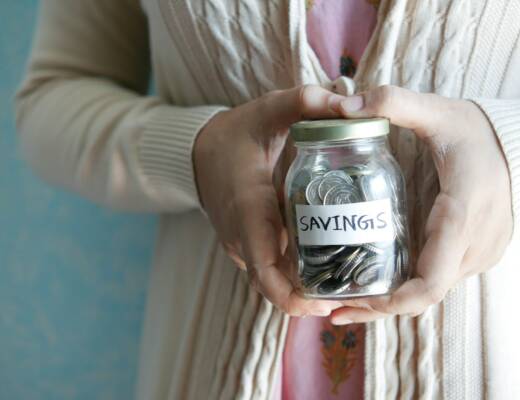Accidental transfers of money can happen to anyone. You might get money sent to you by mistake, and then you might wonder what to do next. This article will help you understand the rules about keeping accidental transfers and what steps you should take if someone mistakenly sends you money. We will also explore the legal and ethical sides of this issue, as well as how to prevent such situations in the future.
Key Takeaways
- If someone accidentally sends you money, it’s important to find out where it came from.
- Always contact your bank for help when you receive unexpected funds.
- You may be legally required to return the money in many cases.
- Keeping money that isn’t yours can lead to serious legal problems.
- Educating yourself and others about safe money transfers can help prevent mistakes.
Understanding Accidental Transfers
Accidental transfers can happen to anyone, and they often leave us feeling confused about what to do next. Understanding what an accidental transfer is can help us navigate these tricky situations.
What Constitutes an Accidental Transfer?
An accidental transfer occurs when money is sent to the wrong person or account by mistake. This can happen for several reasons:
- Typing errors when entering account numbers.
- Sending money to an old or incorrect email address.
- Miscommunication about payment details.
Common Scenarios of Accidental Transfers
I’ve heard many stories about accidental transfers, and some common situations include:
- A friend accidentally sends you money meant for someone else.
- A business mistakenly pays a vendor twice.
- A family member sends money to the wrong bank account.
These situations can be awkward, but they are more common than you might think.
Legal Implications of Keeping Accidental Transfers
It’s important to know that keeping money that isn’t yours can lead to serious legal issues. In many cases, the law requires you to return the funds. If you don’t, you could face penalties or even legal action. I once read about a case where someone kept a large sum of money by mistake, and it ended up costing them a lot more than they expected. So, it’s always best to act responsibly and return any accidental transfers you receive.
In summary, understanding accidental transfers is crucial. They can happen to anyone, and knowing how to handle them can save you from potential trouble. Remember, it’s always better to be safe than sorry!
Initial Steps to Take When You Receive Unexpected Money
When I first received unexpected money, I was both excited and confused. It’s important to take a moment to breathe and think clearly. The first step I recommend is to verify the source of the funds. You don’t want to get caught up in a situation that could lead to trouble. Here’s what I did:
- Check the sender’s information. Look for any details that can help you understand where the money came from.
- Contact your bank. They can provide guidance on what to do next and help you understand if the transfer was legitimate.
- Document everything. Keep a record of all communications related to the transfer. This can be helpful later on.
Taking these steps can help you feel more secure about the situation. Remember, it’s better to be safe than sorry!
Legal and Ethical Considerations
Understanding Your Legal Obligations
When I first learned about accidental transfers, I was surprised to find out how much the law can vary depending on where you live. In many places, if you receive money by mistake, you might be legally required to return it. This means that keeping the money could lead to legal trouble. It’s important to know your local laws, as they can help you understand what you should do next.
Ethical Implications of Keeping the Money
On a personal level, I often think about what’s right and wrong. Keeping money that isn’t yours can feel tempting, but it raises ethical questions. I believe that returning the money is the right thing to do. Here are some reasons why:
- It builds trust with others.
- It helps you sleep better at night.
- It sets a good example for friends and family.
Potential Consequences of Not Returning the Funds
Not returning accidental transfers can lead to serious consequences. I’ve heard stories of people facing legal actions or even criminal charges. Here’s a quick list of what could happen:
- Legal penalties, including fines.
- Damage to your reputation.
- Stress and anxiety from dealing with the situation.
In conclusion, understanding the legal and ethical sides of accidental transfers is crucial. It’s not just about the money; it’s about doing what’s right and protecting yourself in the long run. Remember, our mission is to simplify complex financial information and decisions so that our readers have the confidence to manage every aspect of their financial life.
How to Return Accidental Transfers Safely
When I found myself in a situation where I received money I didn’t expect, I realized it was important to handle it the right way. Here’s how I approached returning those funds safely:
Contacting the Sender Directly
First, I tried to reach out to the person who sent the money. It’s always best to communicate directly. I sent them a message or called them to let them know about the mistake. This way, I could clear up any confusion right away.
Using Bank Channels to Reverse the Transfer
If I couldn’t get in touch with the sender, I went to my bank. They were really helpful! I learned that I could ask them to reverse the transfer. It’s crucial to act quickly because the longer I waited, the harder it might be to get the money back.
Ensuring Your Financial Safety During the Process
While I was handling everything, I made sure to keep my financial information safe. I didn’t share my personal details with anyone I didn’t trust. I also kept records of all my communications, just in case I needed proof later.
Returning accidental transfers can feel tricky, but by following these steps, I felt more secure in my actions. Remember, it’s always better to do the right thing!
Real-Life Stories and Lessons Learned
Stories of Accidental Transfers Gone Wrong
I remember hearing about a friend who accidentally received a large sum of money in their bank account. They thought it was a mistake, but instead of checking, they decided to spend it. This decision led to a lot of trouble. The bank found out, and they had to pay back every cent, plus fees. It was a tough lesson about the importance of being careful with unexpected money.
Lessons from Those Who Returned the Money
On the other hand, I spoke to someone who got a similar transfer but chose to return it. They contacted the bank right away and explained the situation. The bank was grateful and even offered them a small reward for their honesty. This taught me that doing the right thing can sometimes lead to unexpected benefits.
How These Experiences Can Guide You
From these stories, I learned a few key points:
- Always verify unexpected funds before taking action.
- Returning money can lead to positive outcomes.
- Keeping money that isn’t yours can have serious consequences, like being accused of fraud. It’s important to act responsibly.
These experiences remind me that honesty is always the best policy, especially when it comes to money. It’s better to be safe than sorry!
Preventing Accidental Transfers in the Future
Accidental transfers can happen to anyone, and I’ve learned that there are some simple ways to help prevent them. Taking a few extra steps can save you a lot of trouble later. Here are some tips I follow:
Tips for Double-Checking Transactions
- Always double-check the recipient’s details before hitting send. A small mistake can lead to big problems.
- Use the payee’s full name and account number to avoid confusion.
- If you’re using a mobile app, make sure you’re sending money to the right contact.
Setting Up Alerts for Unusual Activity
I’ve found that setting up alerts with my bank is super helpful. Here’s what I do:
- I receive notifications for any transactions over a certain amount.
- I get alerts for any changes to my account settings.
- I also check my account regularly to spot anything unusual.
Educating Friends and Family About Safe Transfers
It’s not just about me; I talk to my friends and family about safe money transfers. Here’s how I do it:
- I share tips on verifying details before sending money.
- I explain the importance of using secure payment methods.
- I encourage them to ask questions if they’re unsure about a transaction.
By following these steps, I feel more confident about my transactions and can help others do the same. Remember, being cautious can really make a difference in avoiding accidental transfers!
When Keeping the Money Might Be Justified
Situations Where You Might Legally Keep the Money
Sometimes, there are situations where it might be okay to keep money that was accidentally sent to you. Here are a few examples:
- If the sender has no claim: If the person who sent the money doesn’t ask for it back, you might be able to keep it.
- Mistaken payments: If the transfer was clearly a mistake and you can prove it, you might have a case for keeping it.
- Small amounts: Sometimes, if the amount is very small, it might not be worth the sender’s time to ask for it back.
Understanding Statute of Limitations
It’s also important to know about the statute of limitations. This is the time limit someone has to claim their money back. If too much time passes, they might lose their right to ask for it. This can vary by state, so it’s good to check the rules where you live.
Consulting with a Legal Professional
If you’re unsure about what to do, talking to a lawyer can help. They can give you advice based on your situation. It’s always better to be safe than sorry when it comes to money matters. Getting the right advice can save you a lot of trouble later.
In my experience, it’s best to be cautious. Keeping money that isn’t yours can lead to problems, even if you think it’s justified. Always think about the long-term effects of your decision.
| Situation | Keep Money? | Notes |
|---|---|---|
| Sender doesn’t ask for it | Yes | No claim means you might keep it. |
| Clear mistake | Maybe | Prove it was a mistake. |
| Small amount | Yes | Not worth the hassle for the sender. |
Frequently Asked Questions
What is an accidental transfer?
An accidental transfer happens when money is sent to the wrong person by mistake. This can occur due to typing errors or wrong account details.
What should I do if I receive money I wasn’t expecting?
First, check where the money came from. Then, it’s a good idea to contact your bank for help and keep a record of any messages or calls.
Is it legal to keep money that was sent to me by mistake?
It can be tricky. In many cases, you might be required to return the money, but it depends on the laws in your area.
How can I safely return money that was sent to me by accident?
You can reach out to the person who sent the money if you know them. If not, use your bank’s official methods to send back the funds.
What are some common mistakes that lead to accidental transfers?
Common mistakes include entering the wrong account number, sending money to an old contact, or misreading a payment request.
Can I get in trouble for not returning money I received by mistake?
Yes, you could face legal issues if you don’t return the money. It’s best to act quickly and do the right thing.







